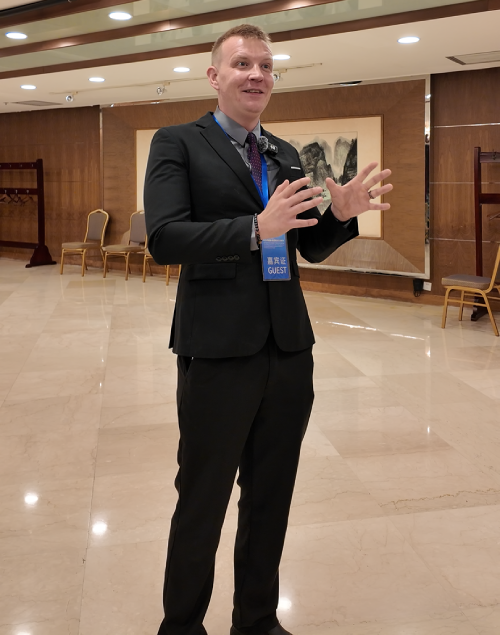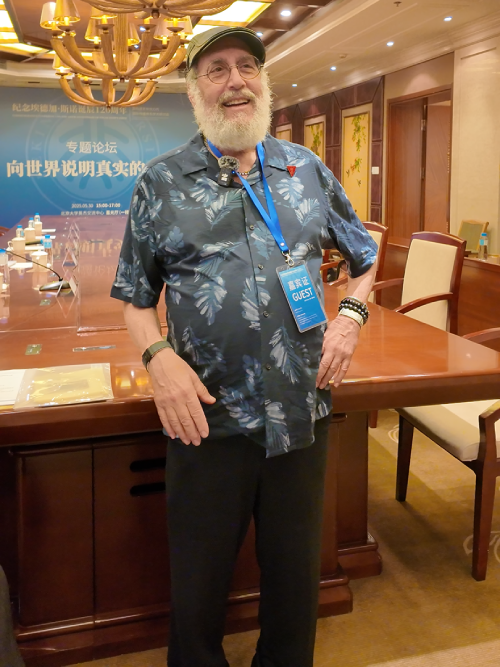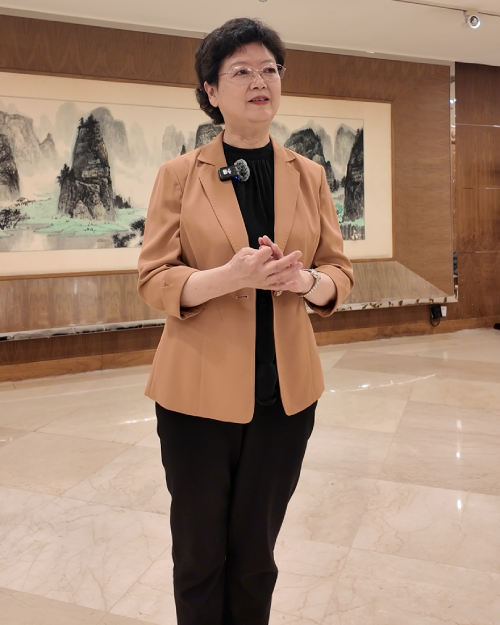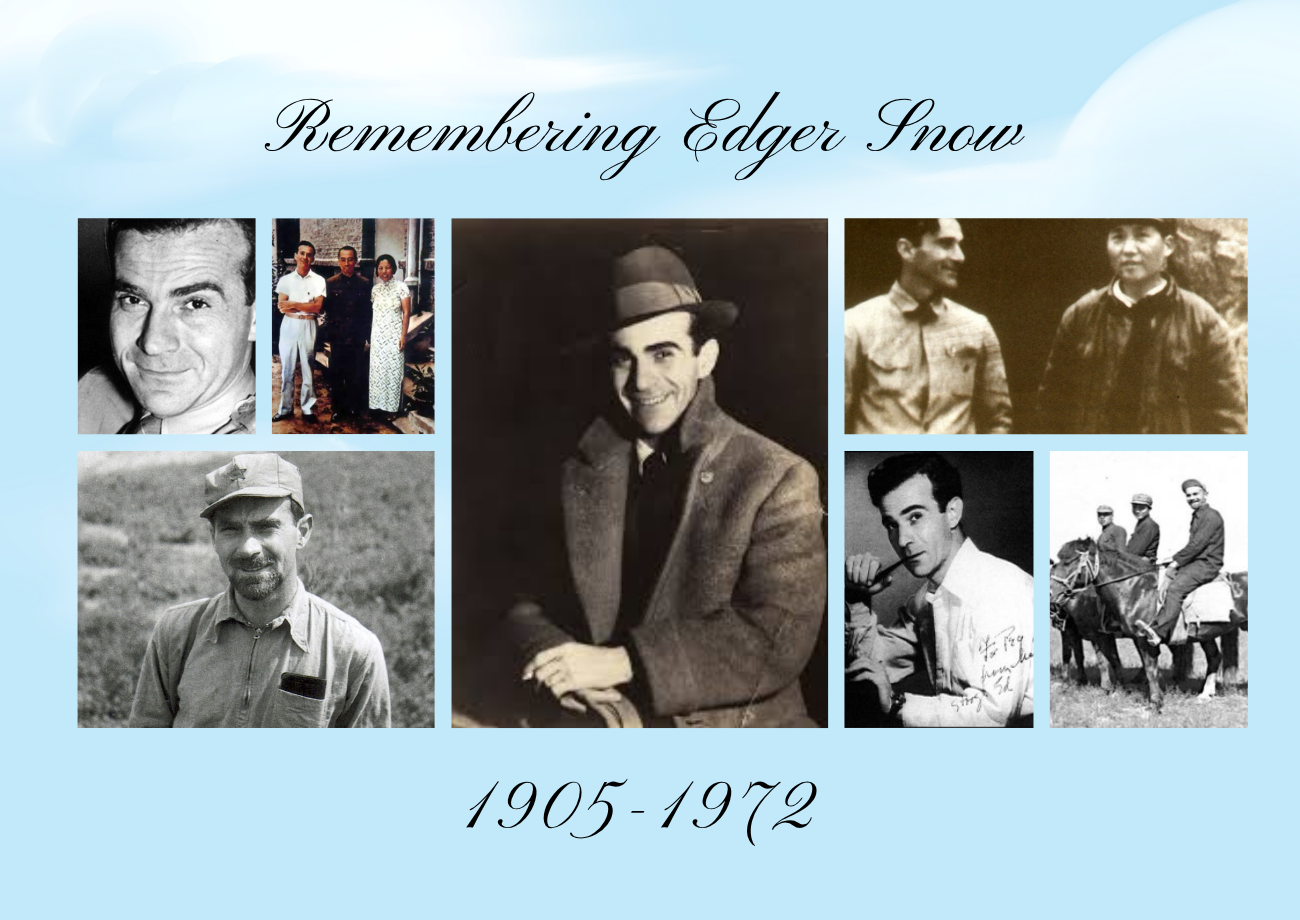
Peking University, June 4, 2025: Paying tribute to a legendary figure in journalism, PKU held a conference on May 30 to commemorate the 120th anniversary of Edger Snow’s Birth.
As leaders of prominent Chinese institutions and international guests gathered at the Overseas Exchange Center, Snow’s heroic deeds were brought back to life in vivid detail, highlighting his trailblazing contributions in unveiling the Chinese Communist Revolution to an international audience.
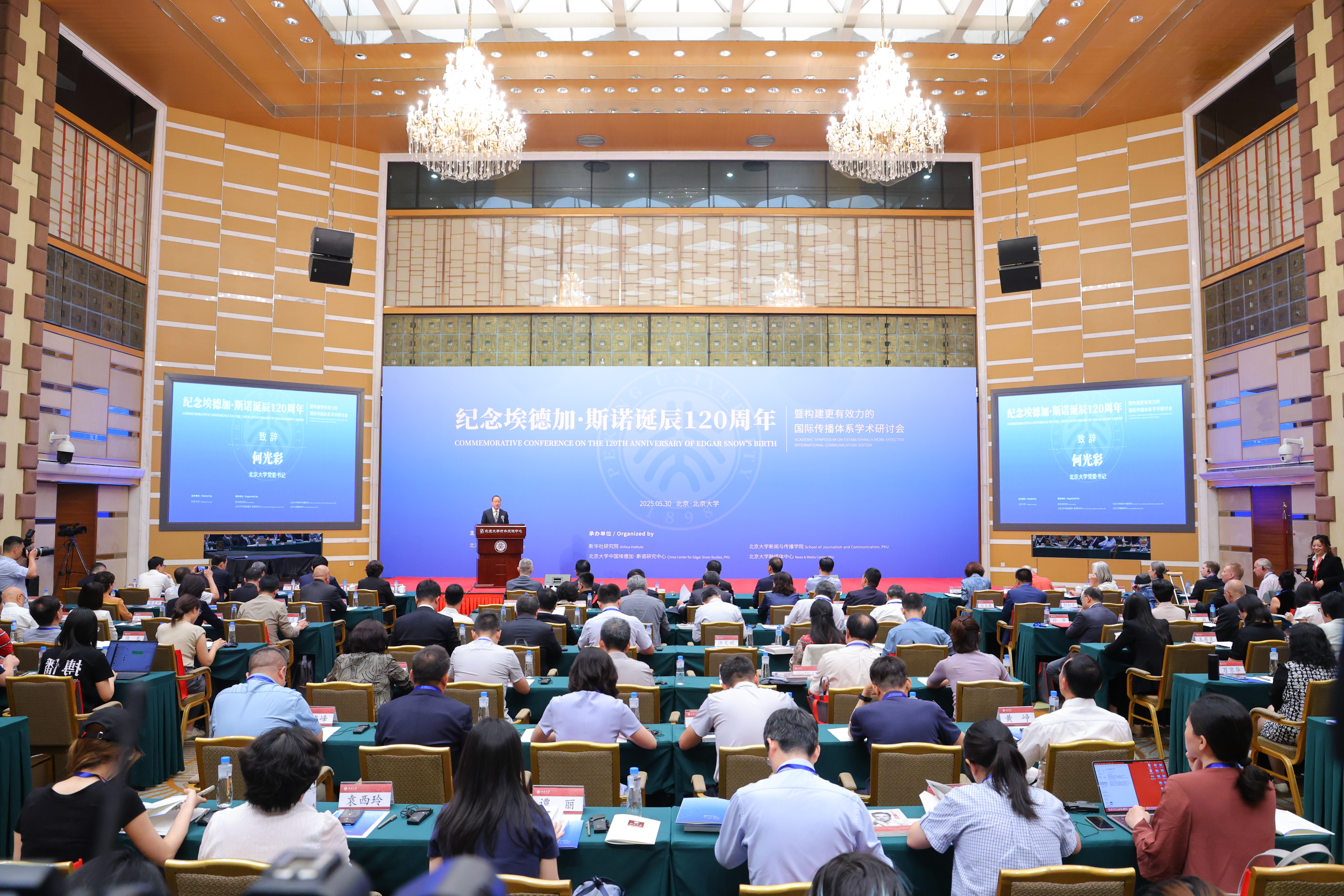
First arriving in China in 1928, Snow traveled throughout the country as a correspondent and reported on many major upheavals, including the Japanese invasion of Manchuria. Through an arrangement made by Song Qingling, a significant supporter of the Communists, he was invited to visit Mao Zedong in northern Shaanxi, where the Communist Party’s headquarters was located.
Snow conducted extensive interviews with the late Chinese leader, which culminated in his seminal book Red Star Over China—an instant bestseller credited with providing unprecedentedly detailed accounts of the early Communist movement in China and most importantly an objective introduction to Mao Zedong.
Snow’s subsequent interviews with Mao Zedong and Zhou Enlai after WWII were a catalyst to Richard Nixon’s visit in 1972. However, Snow unfortunately passed away before he could see the normalization of relations between the two countries. Per his wish, half of his remains is buried near the Hudson River, the other half on the grounds of Peking University.
Speaking at the conference's opening ceremony, Fu Hua, president of Xinhua News Agency, said that Snow was a sincere friend of the Chinese people, an envoy for China-U.S. relations, and a revered journalist.
"Through his cross-border, cross-cultural journalistic practice, Snow provided the world on both sides of the Pacific with an accurate, multi-dimensional and panoramic view of China," Fu said.
Praising Snow’s valor in reporting on the Communist Revolution at a precarious time, He Guangcai, Chair of PKU Council, retraced Snow’s connections with and impact on Peking University. It was through Snow’s film that PKU students and faculty had the first view of the Red Army. Peking University was an important window for Mr. Snow to learn more about China, and the deep bond built between him and the institution helped him become a great reporter, said He Guangcai.
“Peking University will follow Mr. Snow’s footsteps and fulfill its responsibilities and obligations with bravery,” he said. “We will comprehensively enhance our capability in international communication and tell the world about China’s stories through a more effective system.”
Speaking via a pre-recorded video, He Liliang, a centenarian representative of Snow’s friends, affectionately reflected on her personal friendship with Snow and his contributions to China’s revolution.
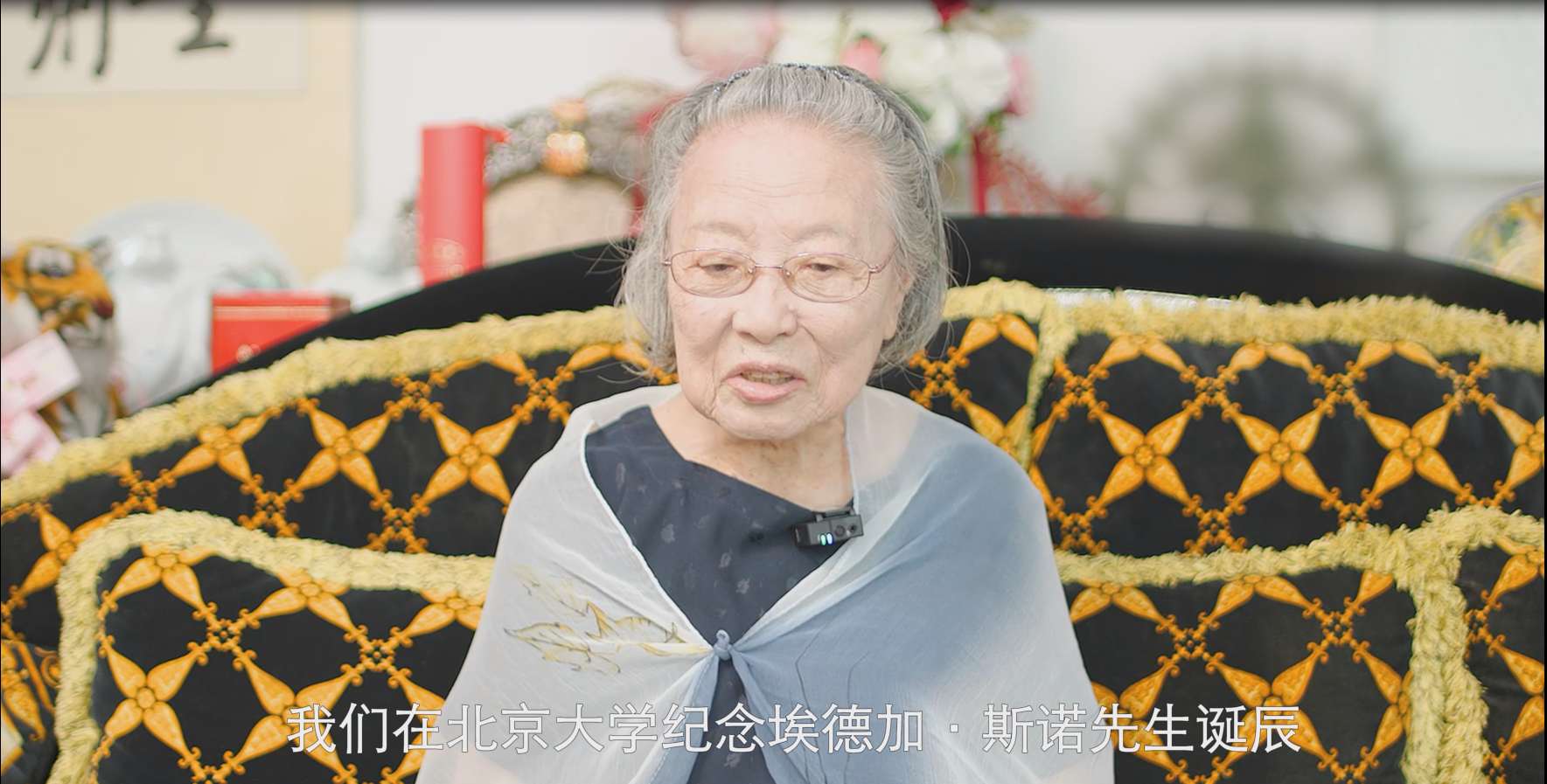
He Liliang speaks at the conference’s opening ceremony via a pre-recorded video
She said that Snow used to offer his living room in Peiping, as Beijing was called back then, as a secret rendezvous for patriotic students of the anti-Japanese movement. When he was in Yan’an, the erudite manner, valor, and discipline of the Red Army leadership left him impressed and firmly believing that the Communist Party would eventually triumph.
“His final words on his sickbed were a passionate ‘I love China,’” she said, beaming a tender smile.
Nancy Hill, President Emeritus of the Edgar Snow Memorial Foundation, recapped her journey of getting to know China and Snow’s legacy. She pointed out that “the richly detailed reporting and highly nuanced accounts of the party leaders” made
Red Star Over China a masterpiece, remaining till this day a required reading for anyone wanting to learn more about China.
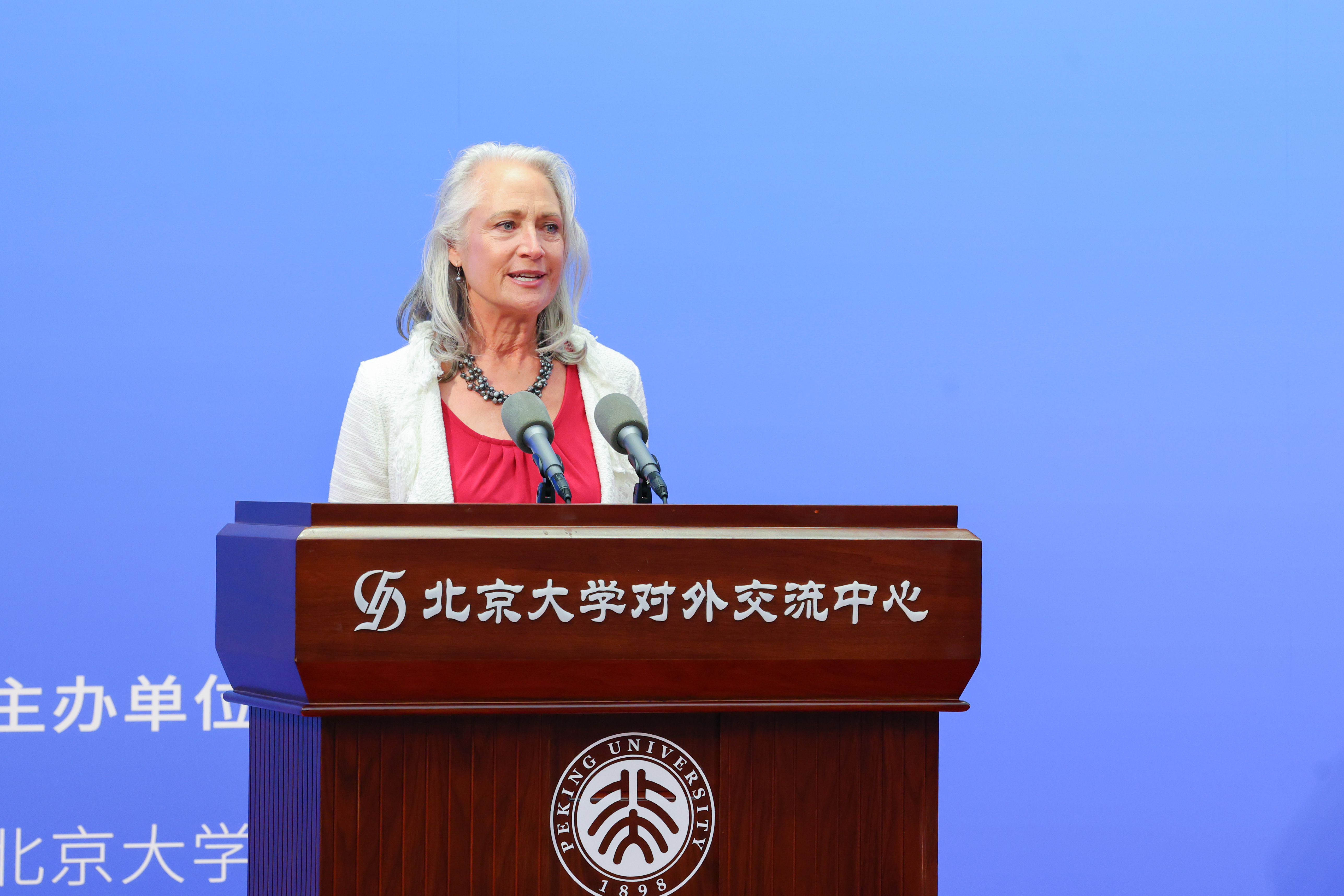
Nancy Hill speaks at the conference’s opening ceremony
“In sum, Edgar Snow’s life and work have so many lessons for us about International Communication: be curious; be open minded; do your homework; ask good questions and listen closely to the answers.”
On the sidelines of the conference, PKU News interviewed some attendees on their perspectives on Snow’s legacy, all of whom presented interesting viewpoints and suggested different methods of further spreading China’s story.
Erik Nilsson recounted his experience of retracing Snow’s footsteps through Yan’an, emphasizing that though he experienced much less hardship than Snow did during a time of turmoil, they both devoted themselves “to chronicling stories not only about China but ultimately about hope come true.”
“I look forward to continuing to chronicle China’s continued progress, as the country moves beyond xiaokang to become a great modern socialist country.”
Erik Nilsson in an interview with PKU News
A recipient of the Chinese Government Friendship Award, Mr. Nilsson has traveled through every province on the Chinese mainland, covering poverty alleviation, disaster relief, environmental protection and general development for the past 19 years. He is also a founding member of China Daily’s Edger Snow Newsroom.
Mr. Nilsson stressed the need to be creative for China’s story to reach wider age groups, pointing to his award-winning
Belt and Road Bedtime series as an example. Deviating from the traditional media coverage of BRI, which typically shows clips of infrastructure, this series depicts a lovely dialogue in which Erik explains to his daughter the Chinese initiative in an engaging way. This series has won media acclaim around the world.
Mark Levine, Professor at Minzu University of China and also a recipient of the Chinese Government’s Friendship Award, highlighted the courage showcased by Snow while treading into uncharted territories, saying that it is an important legacy for everybody to learn. “If you are interested in finding out the truth, you have to do some work, which might be dangerous, difficult, and uncomfortable, but you need to do it.”
Mark Levine in an interview with PKU News
As an avid fan of music, Mr. Levine has captured many of his experiences in China through song, accompanied by warm strums of his guitar. He has performed on many TV shows in China, including Xingguang Dadao, or “Star Boulevard”, and CGTN’s Spring Festival Gala, the uplifting rhythm and lyrics of his song striking a chord with many Chinese people.
To further spread China’s story, he stressed the need to increase two-way communication, as “more talking would bust the wall of mythology built around China.”
“While people are here, then every opportunity needs to be taken for them to see all kinds of different things…then they can go to their home countries and tell the stories and their perspectives.
Cheng Manli, Professor at PKU School of Journalism and Communication, praised the authenticity of Snow’s report on the Red Army, saying that the report holds a high standard in journalism. She said that more journalists need to follow Snow as an example and go to where news is happening for a firsthand view, instead of concocting information based purely on biases and misconception.
Cheng Manli in an interview with PKU News
“Snow was a good role model for us, in that he did not buy the disinformation spread by Kuomintang, instead going to the frontline in Shaanxi, where he made an objective and correct news report,” she said. “We all need to have this spirit.”
The conference also included a series of seminars where guests explored how China can build a more effective international communication system, focusing on topics such as “Presenting the real China to the World” and “Talent development & the legacy of Edger Snow’s spirit.”
Written by: Chen Shizhuo
Edited by: Zhang Jiang
Photo by: Li Xianghua
Photo Illustration by: Chen Shizhuo




